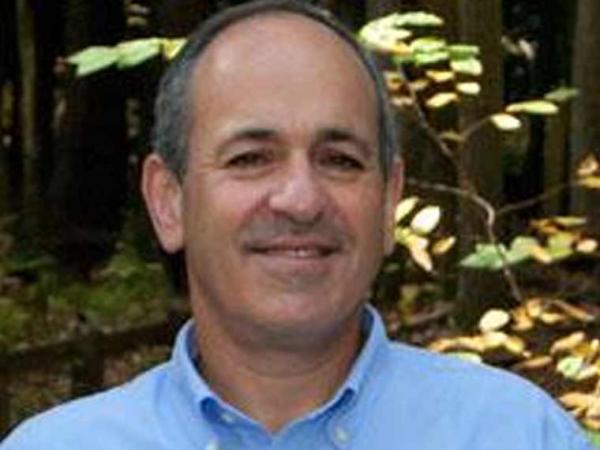Terrestrial Denitrification: A tale of misery, woe and the frontiers of environmental science
Dr. Peter Groffman
2016 Ralph E. Bennett Research Seminar in Mycology and Plant Biology
Understanding the nitrogen cycle at landscape, regional and global scales is a great current challenge in environmental science. Large amounts of “missing nitrogen” have complicated efforts to address the effects of excess reactive nitrogen pollution on tropospheric ozone levels, coastal eutrophication and drinking water quality, and to determine “critical loads” for atmospheric nitrogen deposition. Uncertainty about nitrogen balances has led to increased interest in nitrogen gas fluxes as a fate of excess nitrogen.
Denitrification, the conversion of reactive nitrogen oxides into nitrogen gases, is a challenging process to study in terrestrial ecosystems. This process is difficult to quantify. A particular challenge is that small areas (hotspots) and brief periods (hot moments) account for a high percentage of nitrogen gas flux activity.
In this talk, Dr. Peter Groffman will review recent advances in measuring denitrification at multiple scales in forest, wetland and urban ecosystems. The challenges in denitrification studies -- methodological problems, multi-factor variability, and scaling -- are representative of many frontier topics in Environmental Science. Groffman argues that the approaches and solutions that we have developed for denitrification have relevance to many current topics in this discipline.
Dr. Peter M. Groffman is a Professor at the City University of New York Advanced Science Research Center and Brooklyn College. His research interests are in ecosystem, soil, landscape and microbial ecology, with a focus on carbon and nitrogen dynamics. Groffman is chair of the Executive Board of the U.S. National Science Foundation funded Long-Term Ecological Research (LTER) network Science Council and a participant in LTER projects in Baltimore (urban) and New Hampshire (northern hardwood forests). Groffman was a Convening Lead Author for the 2013 U.S. National Climate Assessment Chapter on Ecosystems, Biodiversity and Ecosystem Services and a lead author for the Second (Wetlands) and Third (North America) Assessment Reports of the Intergovernmental Program on Climate Change (IPCC).
This event is free and open to the public.
Understanding the nitrogen cycle at landscape, regional and global scales is a great current challenge in environmental science. Large amounts of “missing nitrogen” have complicated efforts to address the effects of excess reactive nitrogen pollution on tropospheric ozone levels, coastal eutrophication and drinking water quality, and to determine “critical loads” for atmospheric nitrogen deposition. Uncertainty about nitrogen balances has led to increased interest in nitrogen gas fluxes as a fate of excess nitrogen.
Denitrification, the conversion of reactive nitrogen oxides into nitrogen gases, is a challenging process to study in terrestrial ecosystems. This process is difficult to quantify. A particular challenge is that small areas (hotspots) and brief periods (hot moments) account for a high percentage of nitrogen gas flux activity.
In this talk, Dr. Peter Groffman will review recent advances in measuring denitrification at multiple scales in forest, wetland and urban ecosystems. The challenges in denitrification studies -- methodological problems, multi-factor variability, and scaling -- are representative of many frontier topics in Environmental Science. Groffman argues that the approaches and solutions that we have developed for denitrification have relevance to many current topics in this discipline.
Dr. Peter M. Groffman is a Professor at the City University of New York Advanced Science Research Center and Brooklyn College. His research interests are in ecosystem, soil, landscape and microbial ecology, with a focus on carbon and nitrogen dynamics. Groffman is chair of the Executive Board of the U.S. National Science Foundation funded Long-Term Ecological Research (LTER) network Science Council and a participant in LTER projects in Baltimore (urban) and New Hampshire (northern hardwood forests). Groffman was a Convening Lead Author for the 2013 U.S. National Climate Assessment Chapter on Ecosystems, Biodiversity and Ecosystem Services and a lead author for the Second (Wetlands) and Third (North America) Assessment Reports of the Intergovernmental Program on Climate Change (IPCC).
This event is free and open to the public.
| Building: | Gates Lecture Hall, UM Biological Station |
|---|---|
| Event Type: | Lecture / Discussion |
| Tags: | Lecture |
| Source: | Happening @ Michigan from University of Michigan Biological Station |


